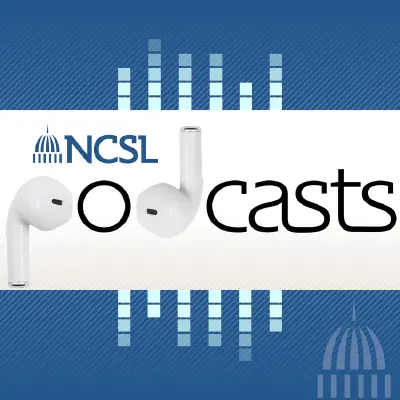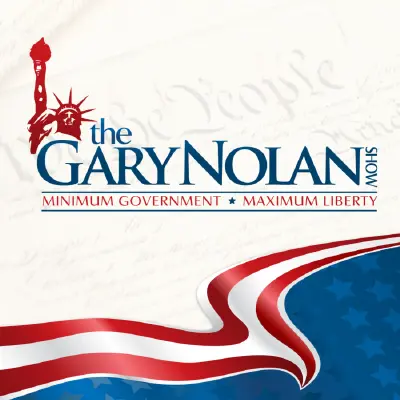Podcasts about Government
Episodes about Government

Jul 13, 2025
The Future of Air Warfare: Offensive Electronic Attack (Sponsored)
Fighter Pilot Podcast ❭
Electronic warfare is a crucial element of armed conflict involving controlling and protecting the electromagnetic spectrum which is vital for communication, navigation, and target identification. EW also permits the disruption and denial of adversaries' use of the spectrum, hindering their ability to operate effectively.Benjamin “Chuck” Angus, Director of Business Development in Naval Power at Raytheon, a business of RTX, joins us this week to discuss Raytheon's involvement in EW, specifically offensive electronic attack, with its Next Generation Jammer—an advanced electronic attack system that denies, disrupts and degrades enemy technology, including communication tools and air-defense systems.Support this podcast at — https://redcircle.com/the-fighter-pilot-podcast/donations
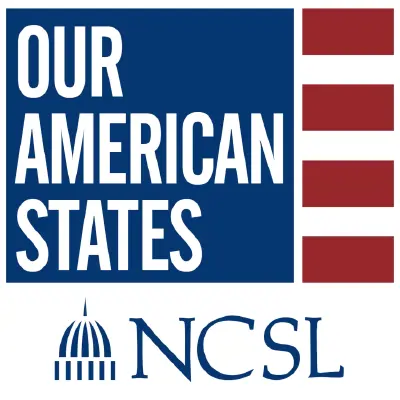
Our focus on this episode is wildlife crossings, underpasses or bridges built just for animals. Millions of animals are killed by vehicles annually on U.S. roads, ranging from large mammals like deer to smaller creatures like squirrels and birds. Animal-vehicle collisions result in about 200 human deaths and 26,000 injuries each year.Joining the podcast to discuss the issue are Matt Skroch, director of Pew’s U.S. Conservation Project for the western U.S. and Alaska; Senator Mimi Stewart, a Democrat from New Mexico; and Rep. Katie Zolnikov, a Republican from Montana. Skroch explained the dimensions of the problem and why a nation with about 4 million miles of roadway has a significant challenge with vehicle-animal collisions. He also noted that states are studying and acting on the issue. In fact, nine states have enacted legislation related to wildlife crossings since 2020. I asked Senator Stewart and Representative Zolnikov, both of whom sponsored legislation on wildlife crossings in their states, to explain how state lawmakers are tackling the issue.Stewart discussed the extensive planning that was done in New Mexico and how the fund received $50 million for this legislative year, the largest single amount appropriated for crossings in any state in a single year.Zolnikov explained that Montana is No. 2 in vehicle-animal collisions in the country on a per capita basis and how the state is building up its fund to pay for crossings.ResourcesPew U.S. Conservation Project
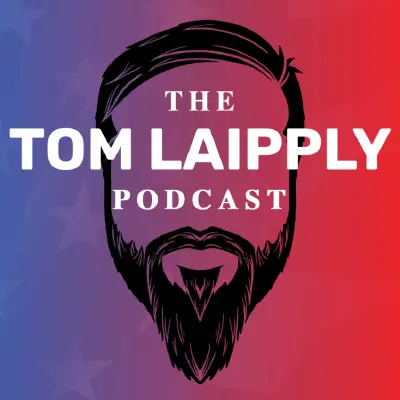
Subscribe to my podcast: https://rss.com/podcasts/tomlaipply/FOLLOW ME:Rumble: https://rumble.com/c/tomlaipplyX: https://x.com/tom_laipplyWebsite: https://tomlaipply.com/Instagram: http://instagram.com/tom_laipply/Facebook: https://facebook.com/pastortomlaipply

Jul 11, 2025
Trump's DOJ and FBI Leaders Clash in 'Blame' Over Epstein Fallout
The Beat with Ari Melber ❭
MSNBC's Ari Melber hosts "The Beat" on Friday, July 11, and reports on the MAGA civil war over the Epstein files that is igniting a clash inside Trump's DOJ, NYC's Zohran Mamdani and the latest on President Trump's controversial deportation policies. Paul Krugman, Richard Farley, Faiz Shakir, Michelle Goldberg and Alencia Johnson join.

Today on The Editors, Jack Butler stands in for Rich, and he, along with Charlie, Audrey, and Phil discuss Elon Musk's third party, divisions within the Pentagon over Ukraine, how long Trump's political success can last, and much more. Light items:Charlie: WimbledonAudrey: Rewatched Les MisPhil: Exciting license-plate sightingJack: Birthday shenanigansEditors' Picks:Charlie: The debt crisis debate on the CornerAudrey: Jeff’s "Why the Mamdani College-Application Story Is Personal for the Left’s Intelligentsia"Phil: Also editors’ “free lunch” discourse on the CornerJack: Jeff’s "Elon Musk Accidentally Unleashes MechaHitler"Sponsors:Allegiance GoldNRI’s Burke to Buckley programMoinkBully Pulpit Podcast

'Europe from the Inside'
In the final edition of IIEA Insights before the summer break, recently retired Head of the European Commission’s Representation Office in Dublin, Barbara Nolan, will offer reflections from her decades-long career in the EU civil service. In the discussion, she will examine the changing role of the European Commission and other EU institutions; power dynamics within the bloc in the context of a near-tripling of members during her career; and how Britain’s exit from the bloc has changed it. Barbara will also offer perspectives on Ireland’s interests and positions in the EU over three decades.
Barbara Nolan was Head of the European Commission Representation in Ireland on two occasions, from 2021-2024 and 2010-2016, but spent most of her career at the Commission’s HQ in Brussels. There, she was in charge of Fundamental Rights Policy in the Justice and Consumers Directorate General and represented the Commission on the board of the Fundamental Rights Agency. She was also responsible for the coordination of the Erasmus+ programme, the reform and modernisation of Higher Education, and worked on Anti-Discrimination Policy and Communications and Media. She was the European Commission's Spokesperson for Employment, Social Affairs and Health matters, as well as for Justice and Home Affairs.
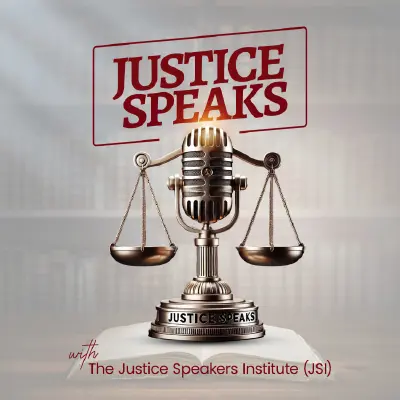
Jul 10, 2025
#83 - Judge Nancy Butts on Treatment Courts, Reform, and Redemption
Justice Speaks Podcast ❭
In this episode of Justice Speaks, Judge Nancy Butts reflects on nearly 30 years on the bench and her pioneering role in Pennsylvania’s treatment courts. From trauma-informed care to national justice reform, she offers powerful insights on leadership, compassion, and the future of probation and community supervision.

This year marks the centenary of the publication of Franz Kafka’s novel, The Trial - a seminal work that continues to captivate and unsettle its readers. EI’s Alastair Benn and Paul Lay are joined by Karolina Watroba, author of Metamorphoses: In Search of Franz Kafka, to discuss Josef K’s tragic entanglement with a suffocating bureaucracy.
Image: Portrait of Franz Kafka. Credit: history_docu_photo / Alamy Stock Photo
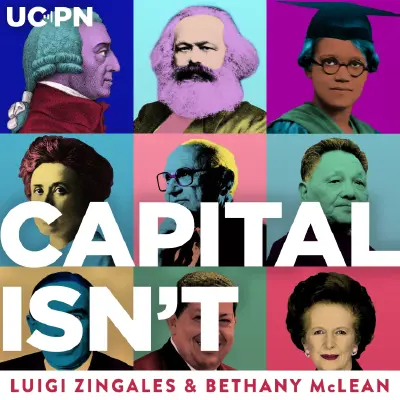
After the 2008 financial crisis, and especially after the COVID pandemic of 2020, an increasing number of Americans are questioning the wisdom of unregulated markets and envisioning a more active role for the state. Scholars have coined a panoply of neologisms to capture this view of the political economy, including political scientist Kenneth Vogel’s “marketcraft.” The term indicates that the state not only lays the foundation for markets through the protection of the rule of law and property rights, but it also shapes market economies through policy interventions and regulatory institutions like the Federal Trade Commission.Chris Hughes’ new book, “Marketcrafters: The 100-Year Struggle to Shape the American Economy,” traces how governments led by both major parties have worked with the private sector since the country’s founding to intentionally and strategically shape markets. The narrative reveals how Adam Smith’s proverbial “invisible” hand has always been rather quite visible.Hughes is a co-founder of Facebook who left the company in 2007 to work for former President Barack Obama and is now completing his PhD at the University of Pennsylvania’s Wharton School. Hughes joins Bethany and Luigi to discuss the government’s historical role, both in success and failure, of marketcrafting to rebalance economic power and create fairer and more efficient markets. Their journey takes us from the creation of the Federal Reserve in 1913 in response to a series of banking failures to recent mass investment in the semiconductor industry. Together, they discuss how to stop marketcrafting from becoming a victim of the political process, how it is operationalized differently in times of normalcy versus times of crisis, and how it must navigate the limits of individual and institutional power. Finally, they also discuss whether it is truly possible to craft markets in advance or only to correct market flaws after a crisis, with Hughes’ own prior stomping grounds at Facebook as their case study.Read an excerpt of the book on ProMarket here.
